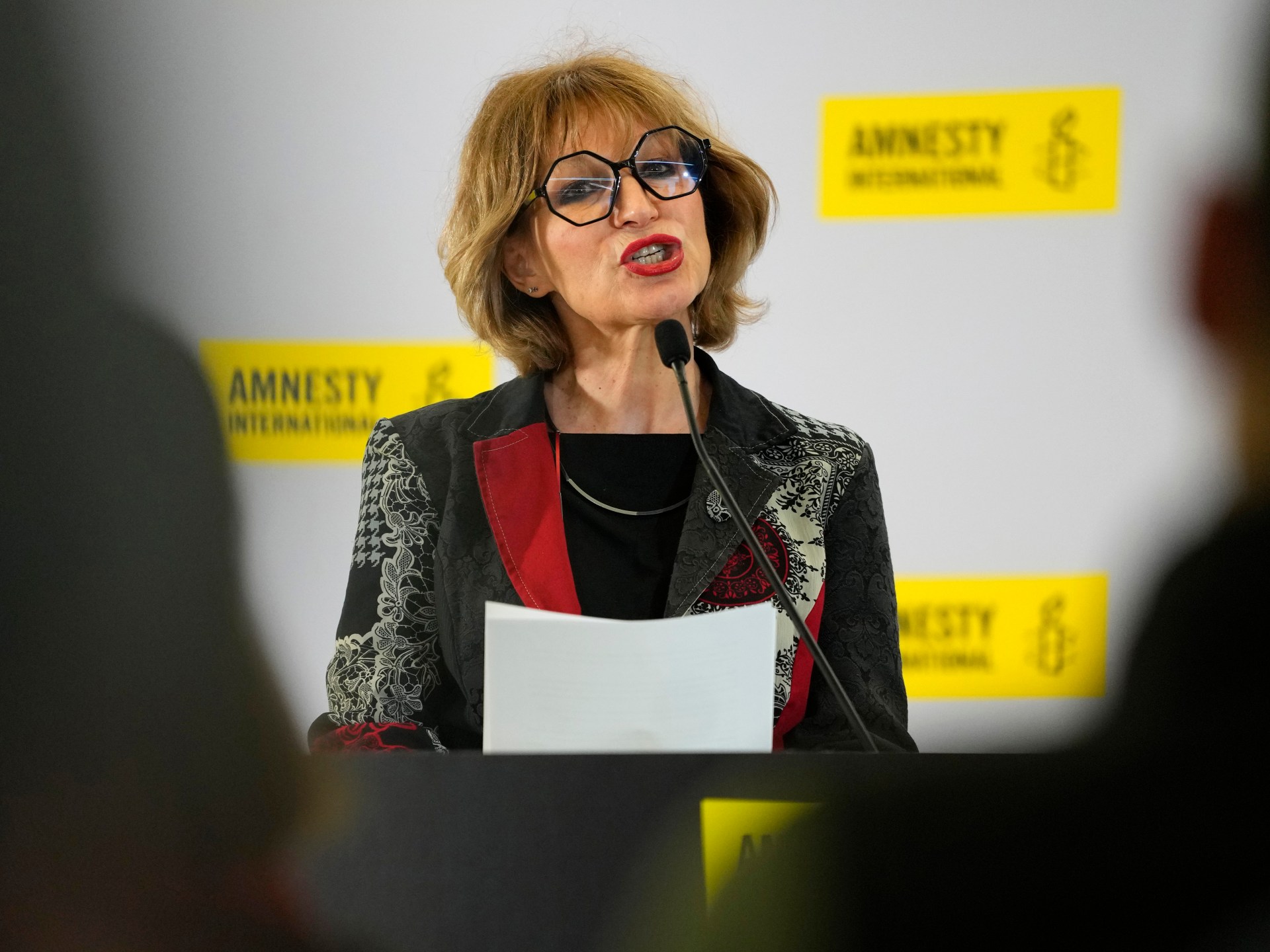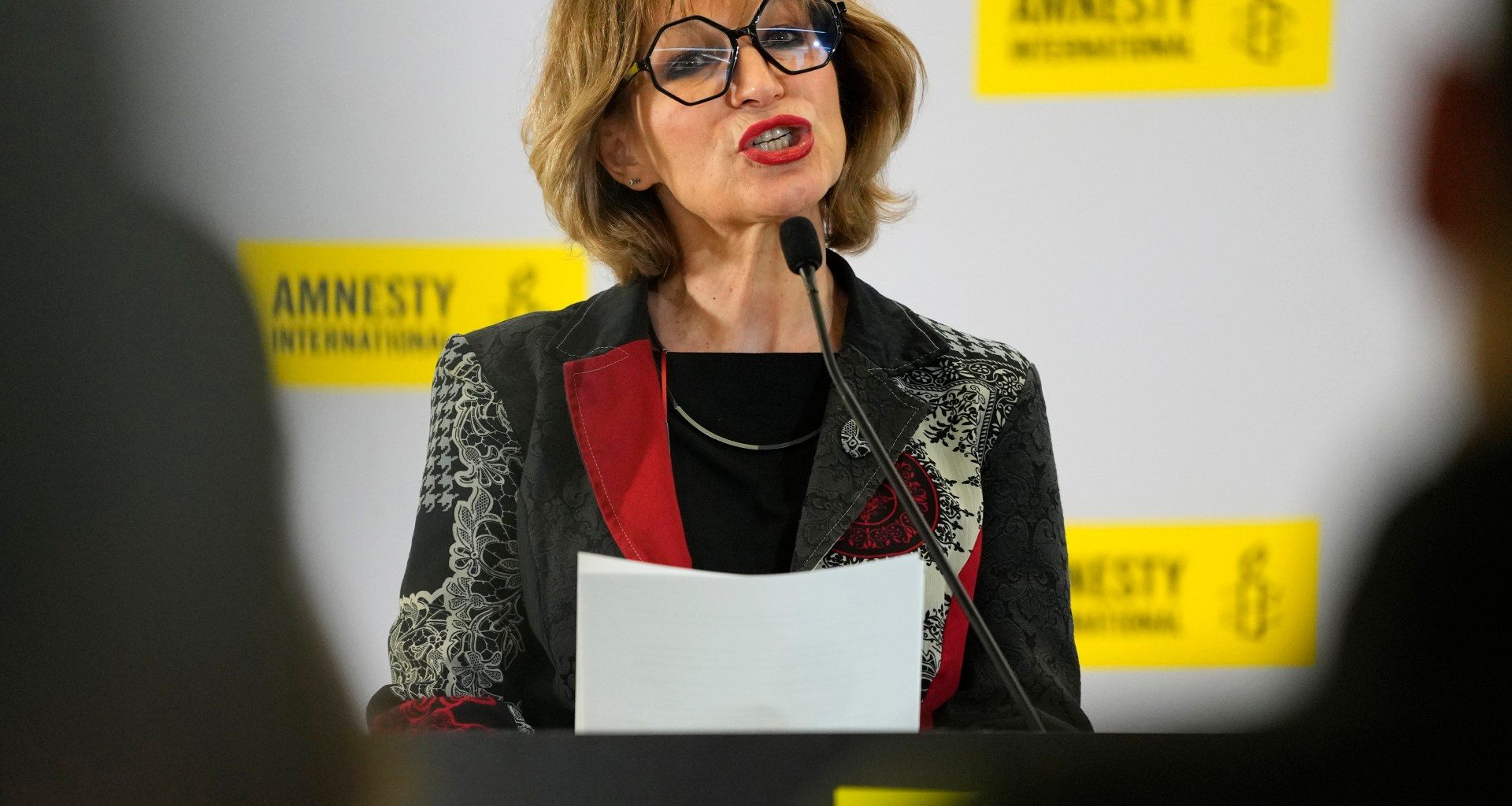
The world is facing the collapse of the 1948 international order established in the wake of World War II, amid the brutal wars in Gaza and Ukraine, while authoritarian policies continue to spread, Amnesty International has warned.
The report accused the world’s most powerful governments, including China, Russia and the United States, of leading the global disregard for international rules and values enshrined in the Universal Declaration of Human Rights of December 1948.
The war in Gaza, which began on October 7, was a “descent into hell”, Secretary-General Agnes Callamard wrote in her preface to the report, where “the ‘never again’ moral and legal lessons [of 1948] were torn into a million pieces”.
Noting that Hamas had committed “horrific crimes” in its assault on communities in southern Israel on October 7, Callamard said Israel’s “campaign of retaliation” had become a “campaign of collective punishment”.
Amnesty said while Israel continued to disregard international human rights law, the US, its foremost ally, and other countries including the United Kingdom and Germany were guilty of “grotesque double standards” given their willingness to back Israeli and US authorities over Gaza while condemning war crimes by Russia in Ukraine.
“Israel’s flagrant disregard for international law is compounded by the failures of its allies to stop the indescribable civilian bloodshed meted out in Gaza. Many of those allies were the very architects of that post-World War Two system of law,” Callamard said. “Alongside Russia’s ongoing aggression against Ukraine, the growing number of armed conflicts, and massive human rights violations witnessed, for example, in Sudan, Ethiopia and Myanmar – the global rule-based order is at risk of decimation.”
At least 34,183 Palestinians have been killed and 77,143 injured in Israeli attacks on Gaza over the past six months, while more than 1,100 people were killed and dozens taken captive by Hamas on October 7.
Moscow, a veto-holding permanent member of the United Nations Security Council (UNSC), sent troops into Ukraine in February 2022 in a full-scale invasion, and Amnesty said it continued to breach international law with “deliberate attacks against civilians” and the use of “torture or other ill-treatment against prisoners of war”.
China, another veto-holding member of the UNSC, meanwhile, continued to “shield itself from international scrutiny for the crimes against humanity it continues to commit, including against the Uighur minority” in the far western region of Xinjiang.
The UN first revealed the existence of the network of detention centres in 2018, saying at least 1 million Uighurs and other ethnic minorities were being held there. China later admitted there were camps in the region, but said they were vocational skills training centres necessary to tackle “extremism”.
In October 2022, the UN Human Rights Council voted not to debate the issue even though the UN’s human rights office concluded the scale of the alleged abuses might amount to “crimes against humanity“.
‘Hatred and fear’
China and Russia were also criticised for their continued role in Myanmar after the military seized power in a coup in February 2021.
At least 1,000 civilians were killed last year alone, Amnesty said, amid the country’s escalating civil war. The military has been accused of widespread abuses including targeting civilians with air strikes and burning down villages. More than 2.7 million people have been displaced, and nearly 19 million are in need of humanitarian aid, according to the International Rescue Committee.
“Neither the Myanmar military nor the Russian authorities have committed to investigating reports of glaring violations,” Amnesty said. “Both have received financial and military support from China.”
Amnesty’s The State of the World’s Human Rights is released annually and this year assessed the human rights situation in 155 countries and territories across the world.
This year’s report also stressed how authoritarian ideas had continued to spread across the world, with narratives “based in hatred and rooted in fear”. Space for freedom of expression and association had been squeezed with ethnic minority groups, refugees and migrants bearing the brunt of the backlash, it said.
Women’s rights and gender equality had also come under attack with “many of the past 20 years’ gains under threat” amid the crackdown on peaceful protests by women in Iran and the Taliban’s attempts in Afghanistan to remove women from public life.
Amnesty also warned of the risks to the rule of law posed by artificial intelligence (AI) and the dominance of Big Tech.
“In an increasingly precarious world, unregulated proliferation and deployment of technologies such as generative AI, facial recognition and spyware are poised to be a pernicious foe – scaling up and supercharging violations of international law and human rights to exceptional levels,” Callamard warned.
Read More: World News | Entertainment News | Celeb News
Aljazera









